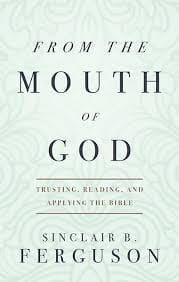Februaty 16
The College of Contentment
These words show us that contentment is not a natural propensity of man. Weeds grow easily. Covetousness, discontent, and murmuring are as natural to man as thorns are to the soil. We do not need to sow thistles and brambles; they come up naturally enough, because they are indigenous to earth. And so we do not need to teach men to complain; they complain fast enough without any education.
But the precious things of the earth must be cultivated. In order to have wheat, we must plow and sow; if we want flowers, there must be the garden, and all the gardener's care.
Now, contentment is one of the flowers of heaven, and if we would have it, it must be cultivated; it will not grow in us by nature. It is the new nature alone that can produce it, and even then we must be specially careful and watchful that we maintain and cultivate the grace that God has sown in us. Paul says, "I have learned . . . to be content," as much as to say he did not know how at one time. It cost him some pains to discover that great truth. No doubt he sometimes thought he had learned, and then broke down. And when at last he had attained to it and could say, "I have learned in whatsoever situation I am to be content," he was an old, gray-headed man, upon the borders of the grave--a poor prisoner shut up in Nero's dungeon at Rome.
We might well be willing to endure Paul's infirmities and share the cold dungeon with him, if we also might by some means attain to his good stature. Do not indulge the notion that you can be contented with learning or learn without discipline. It is not a power that may be exercised naturally but a science to be acquired gradually. We know this from experience. Christian, hush that murmur, even though it is natural, and continue as a diligent pupil in the College of Contentment.
Family Bible reading plan
verse 1 Genesis 49
verse 2 Luke 2
From the Mouth of God: Trusting, Reading, and Applying the Bible
Why should we believe, as Jesus did, that the Scripture is in fact, from 'the mouth of God'? When did it come into existence? Is it inerrant?
What do we need to learn in order to understand what it says and what it means better? How does the teaching of God’s Word change our lives. In From the Mouth of God, Sinclair B Ferguson answers these and other important questions about trusting, reading, and applying the Bible
Click here to learn more about Truth For Life
From Morning & Evening revised and edited by Alistair Begg copyright © 2003. Used by permission of Crossway Books, a publishing ministry of Good News Publishers, Wheaton, IL 60187, www.crossway.org.









